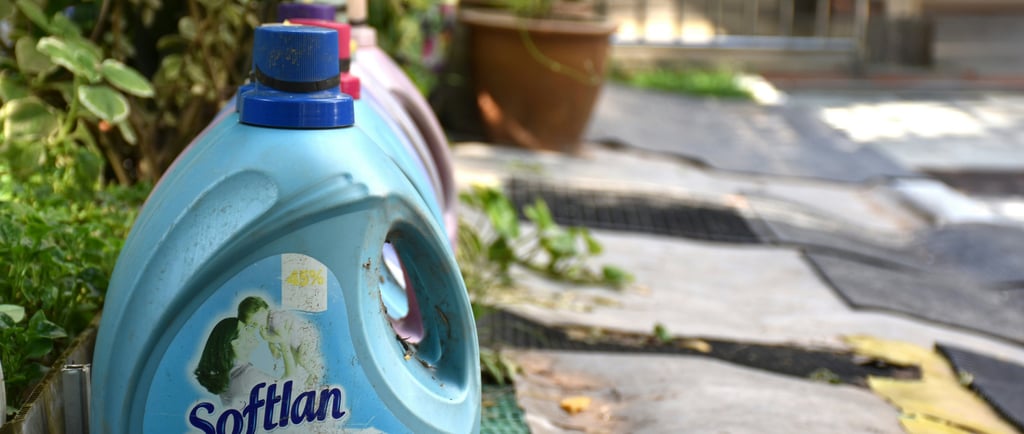A Clean Home, A Dirty Planet?
The Hidden Cost of Household Cleaning: How We Can Reduce Chemical and Plastic Waste
NANOWASH: THE BIG PICTURE
3/26/20252 min read


A new approach to reduce chemical and plastic waste.
A Clean Home, A Dirty Planet?
Every day, millions of households use detergents, fabric softeners, and other chemical-based cleaners to maintain hygiene and freshness. We trust these products to do their job, but few people stop to consider what happens once the chemicals disappear down the drain or when the empty plastic bottles pile up in the recycling bin.
The truth is, our reliance on chemical cleaners comes at a steep environmental cost. The impact is twofold:
1️⃣ Water Pollution – The chemicals in our cleaning products don’t just vanish. They enter our water systems, where they are difficult and expensive to remove.
2️⃣ Plastic Waste – The packaging from these products contributes to the global plastic crisis, with much of it ending up in landfills or oceans.
Let’s take a closer look at these issues and explore how we can clean more effectively while reducing harm to the environment.
The Unseen Struggle of Water Treatment
Once chemicals go down the drain, they don’t just disappear. Wastewater treatment plants work hard to remove phosphates, surfactants, and microplastics found in everyday detergents. But despite advanced filtration processes, some contaminants still make their way into rivers, lakes, and oceans.
💧 Phosphates: Often found in detergents, phosphates can cause algal blooms, which deplete oxygen levels in water, killing fish and other marine life.
💧 Surfactants: These chemicals break down grease and dirt, but they can also be toxic to aquatic life and disrupt ecosystems.
💧 Microplastics: Many cleaning products contain microbeads and synthetic fibers that pass through water treatment facilities, ultimately polluting marine environments.
Water treatment is a complex and costly process. The fewer contaminants we introduce into the system, the easier it is to keep our water clean.
The Plastic Problem: More Than Just Recycling
Most household cleaning products come in plastic containers. While many brands now offer “recyclable” packaging, the reality is that only 9% of plastic waste worldwide is ever recycled. The rest is either incinerated, sent to landfills, or ends up in the environment.
Even the most eco-friendly product must be packaged, transported and discarded, consuming energy, raw materials while generating more waste and pollution. We need to rethink our use of chemicals at the source, reducing our dependence on single-use products whenever possible.
A new approach: Ultrafine Bubbles
What if we could clean just as effectively—without relying so heavily on chemicals?
The ultrafine bubble technology can enhance the cleaning power of water itself. These microscopic bubbles penetrate deep into fabrics, breaking down dirt and bacteria without the need for excessive detergent.
How NanoWash can help
NanoWash successfully brings the industrial-grade ultrafine bubble technology to households. Easy to install in conventional tap water and effortless to use in every wash.
✅ Reduces chemical use – Less chemical waste in our water systems.
✅ Prevent odors and stains – Effective washing with no residues.
✅ Extends clothing lifespan –A big win for both the environment and your wallet.
✅ Minimizes plastic waste – By cutting down on chemical consumption, fewer plastic bottles are needed.
Nano Wash is not just about cleaning clothes—it’s about rethinking how we reduce our dependancy on chemicals and plastics.
The future of cleaning has to be sustainable
We’ve been conditioned to believe that harsh chemicals = better cleaning, but at what cost? With the right technology, we can achieve cleaner clothes, fresher fabrics, and a healthier planet—all without drowning in chemicals.
💡 Small changes lead to big impacts. By adopting innovative solutions like Nano Wash, we can move toward a world where cleaning is effective, sustainable, and kind to the environment.
Are you ready to make the switch? 🌎♻️
#SustainableLiving #EcoFriendly #NanoWash #WaterConservation #PlasticPollution #GreenCleaning
